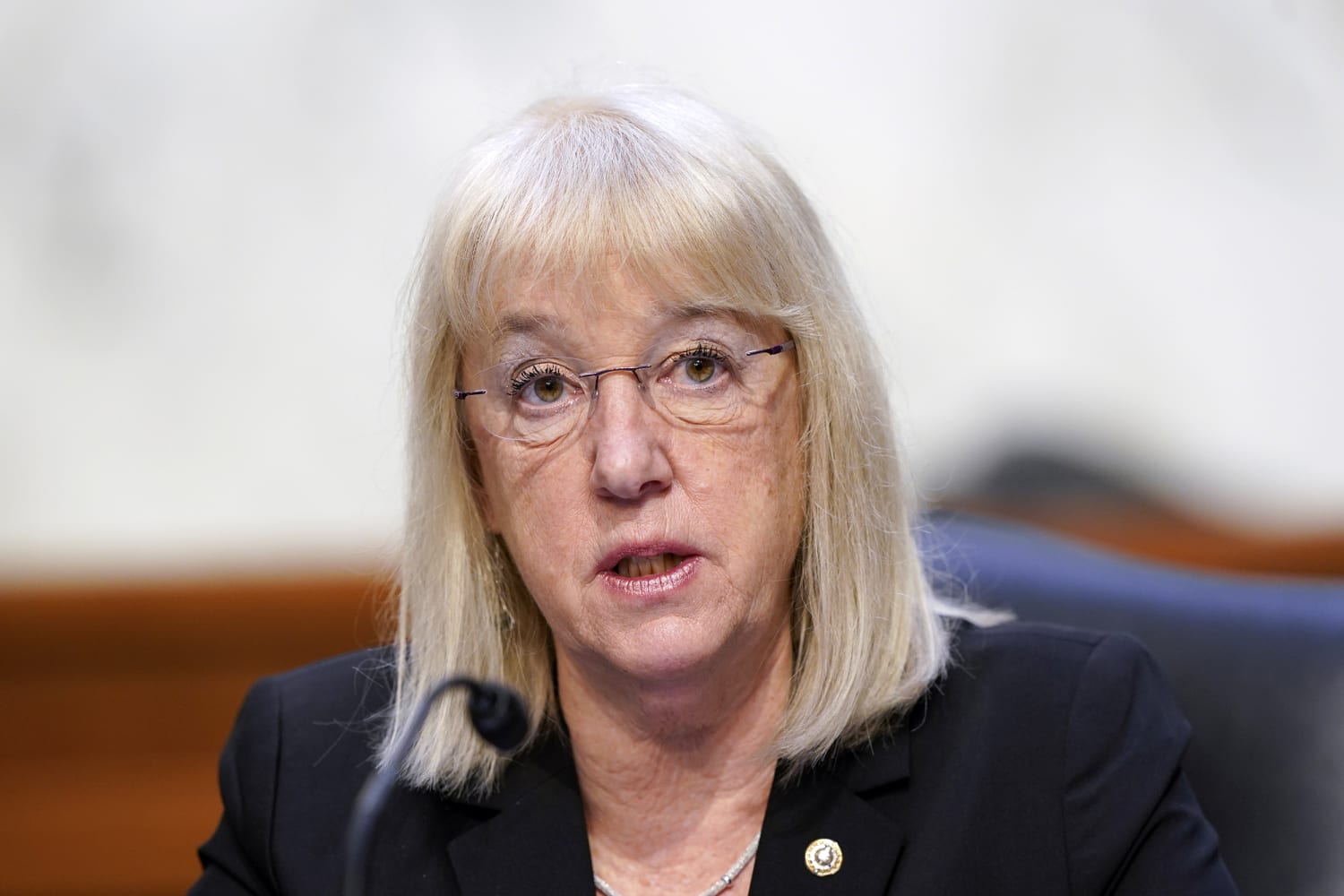[ad_1]

WASHINGTON — When President Barack Obama abandoned a public insurance option to win moderate support for the Affordable Care Act in 2009, progressives were enraged.
A decade later, Joe Biden campaigned on making the public option a reality, but so far, he’s done little to get Congress to enact one. Instead of outrage, influential progressives seem to be OK watching the promise go unfilled, preferring to pursue universal health care through other means, like expanding Medicare eligibility.
Elected officials, health care activists and experts who spoke to NBC News said the issue has fallen off the national radar and will be difficult to revive without a major push by the White House.
Responding to the pandemic has consumed much of Biden’s attention in his first months in office. And beyond that, he has a long list of agenda items to get to first, including many that are popular with progressives.
“I don’t think there’s a dynamic where we see it at the center of a political fight again,” said Alex Lawson, the executive director of the left-leaning group Social Security Works.
‘A green light’
Democratic supporters in Congress say they have not abandoned the fight. Sen. Patty Murray, D-Wash., and Rep. Frank Pallone, D-N.J., who chair health care committees in their chambers, announced in a letter last month that they intend to craft a public option bill.
But even getting a bill to move in Congress could prove complicated.
Making a public option the law would require significant legislative work to flesh out. While the term was often used in 2020 as a catch-all for a system that preserved private insurance but also allowed people to get their coverage through the government, there’s a wide variety of competing versions.
Biden’s own campaign proposal for a “Medicare-like plan” was vague on details. His latest budget proposal, which is an aspirational document for how a president envisions government, acknowledged his support for a public option in accompanying materials, but didn’t include it in the actual spending plan.
Biden’s acting budget director, Shalanda Young, told reporters last month that the White House would “work collaboratively with Congress” to find a more specific proposal.
Two Senate Democrats, Tim Kaine of Virginia and Michael Bennet of Colorado, have sponsored “Medicare X” legislation, which would create a relatively narrow public option, but they have not received an endorsement from the White House, despite it appearing similar to what Biden recommended on the campaign trail.
“We don’t have a green light,” Kaine said. “I think they’re frankly so focused on infrastructure and voting rights for right now that it may be a bit.”
Ben Nelson, a former Democratic senator from Nebraska who was a key vote in 2009 to eliminate the public option from the final ACA legislation, doubts Democrats could even get all 50 of their members in the Senate to support a public option.
“It’s a bad idea,” Nelson, whose legal work touches on the insurance industry, said in an interview. “It’s Medicare for everybody disguised as a public option. It would become the single payer for everybody.”
There is little pressure on the White House from advocates to push for a public option. The lack of enthusiasm among advocates would make fighting opposition from business more difficult.
Much of the health care industry opposes a government plan because it would compete with private insurers for customers and pay out less to hospitals, doctors and drug manufacturers.
‘No natural political constituency’
Progressives have rallied behind abolishing private insurance to set up a “Medicare for All” system, and some see a public option as undermining their cause, rather than a stepping stone to single payer.
Many on the left, including Sen. Bernie Sanders, I-Vt., and the Congressional Progressive Caucus, are coalescing around lowering the Medicare eligibility age below 65 and broadening the program’s benefits to include vision, dental and hearing. There are efforts in Congress to include such a provision in Biden’s infrastructure and jobs plan.
“During the Democratic presidential primaries, a public option emerged as the anti-Medicare for All approach,” Larry Levitt, executive vice president for health policy at the nonpartisan Kaiser Family Foundation, said. “It’s difficult for Medicare for All advocates to now pivot and get behind a public option. That effectively left the public option with no natural political constituency.”
Health care advocates see a better, if still difficult, shot at enacting drug pricing reform first, an issue long championed by Speaker Nancy Pelosi that enjoys strong bipartisan support in polls.
Senate Democratic aides working on a public option acknowledge that the drug issue has more momentum for now.
“It’s not that a public option isn’t a priority. It’s that it’s not ready for prime time,” Frederick Isasi, executive director of the health care advocacy group Families USA, said. “Drug prices are ready for prime time.”
Other top Democratic health care goals, like making the American Rescue Plan’s boost in subsidies for the Affordable Care Act permanent, face no industry opposition and enjoy seemingly universal support within the caucus.
Sen. Joe Manchin, D-W.Va., who would be a critical swing vote on any health care bill, told NBC News that he was open to a public option, but that he supported “President Biden’s approach to fixing what we have right now” in the ACA, and wanted to get those repairs done before he would consider anything else.
There is some movement on a public option at the state level, where Nevada is set to create a new government insurance plan. But given the many obstacles in Washington, it may be difficult for Congress to follow their lead.
“I mean, there’s a million things going on right now,” Sen. Chris Murphy, D-Conn., who co-sponsored a bill that would allow Americans to buy into Medicare, told NBC News. “I know folks would like the Biden administration to deal with every important thing all at once, but that’s impossible.”
[ad_2]
Source link